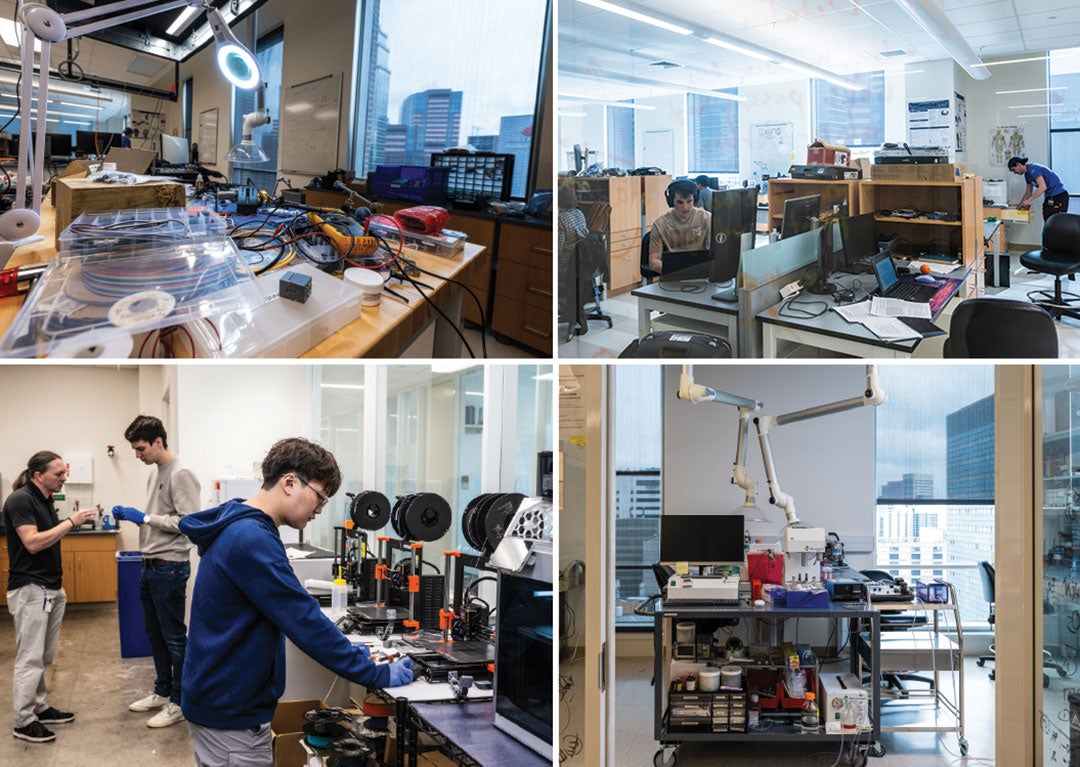Brain Gains
The Rice Neuroengineering Initiative fosters research on the capabilities of the human brain.

Spring 2024
By Nithya Ramcharan
With over 25,000 square feet of labs and experimental spaces within Rice’s BioScience Research Collaborative, the Rice Neuroengineering Initiative is home to groundbreaking research among faculty, graduate students and undergraduates in biosciences and engineering.
“The brain is endlessly fascinating and unfathomably complex, and the range of expertise we are able to bring together as part of the Neuroengineering Initiative allows us to examine and understand that complexity in ways that we simply couldn’t do working apart, each in our own disciplinary siloes,” says Behnaam Aazhang, director of the initiative.
The program’s four key research focus areas include neural regeneration and repair, neural sensing and actuation, data-driven discovery of neural circuits and behaviors, and closed-loop control technologies for neural circuits.
In addition to housing more than half a dozen research labs, the facility includes a “brain kitchen,” a makerspace that labs can use to facilitate their work with the help of sophisticated equipment such as a 3D printer that prints electronic and organic objects using liquid media. Other spaces include a walk-in refrigerator room called the Invertebrate Lab.
Electrical and computer engineer Valentin Dragoi, a core faculty member of the initiative, recently tracked in real time the activity of neuron populations in the brains of freely moving primates — a type of knowledge previously unattainable due to technological limitations — and published his team’s findings in Nature and Nature Neuroscience. In other research, Rice scientists have developed a noninvasive way to monitor gene expression dynamics in the brain, making it easier to investigate brain development, cognitive function and neurological diseases, according to a study published in Nature Biotechnology.
